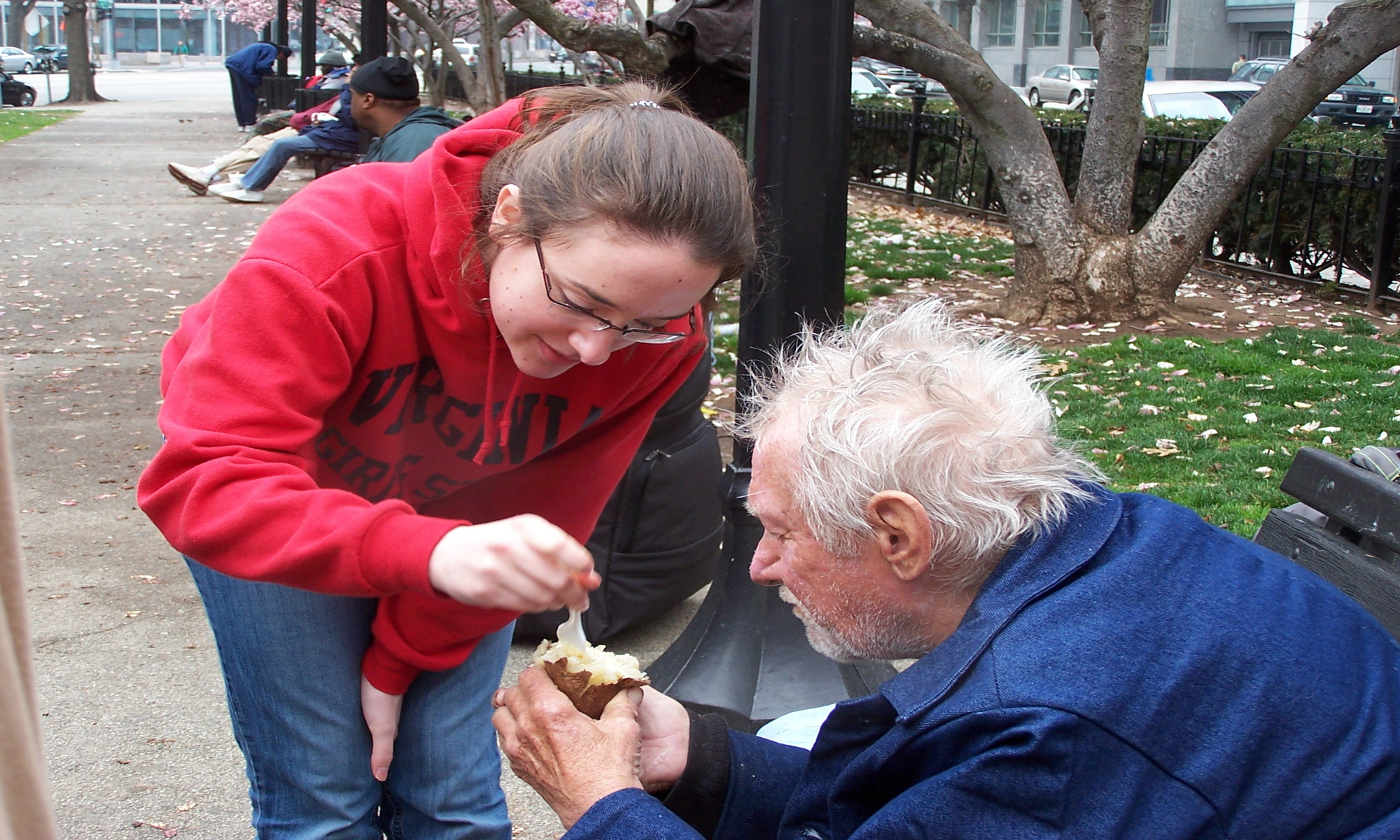By Dina Thompson
[Dina’s church, Providence Chapel Church in Frogtown, Virginia, had their first day of ministry for seniors at a subsidized housing project in their home county. She was so moved by the experience that she wrote down her impressions the day after. It’s easy to see that when we give we often receive more in return] – Steve Jennings
We were greeted with smiles and hellos as we carried in the boxes of canned food and fresh fruit to the common area. Some had already gathered. They knew we were coming and they were waiting for us. We fixed small packages for those who were bound to their rooms to be delivered.
“Mr.”, we called from the hall, “we have some things for you”. We could hear that he was trying to get the door, 10 feet away dragging oxygen tubes and using a cane. It took several minutes for him to eagerly let us in. We put the food away in his cabinets and invited him to the common area. We told him of the people that gathered to meet him, small children, and music. His face lit up. We could see and feel the excitement as he tried to hurry his pace. He could leave his oxygen behind for just a little while, he insisted….. we placed a chair close to his door so it would not be so far for him to walk.
We could barely hear her call to come in. As we entered the room, filled with cigarette smoke, all her necessities surrounded her so she could reach them easily. An older woman, she seemed to be confined to her chair. We could not stay, as the cigarette smoke overwhelmed us, but she thanked us gratefully.
A pink heart shaped welcome sign and angel wings decorated her door. As we waited in the hallway at her door, I thought the music playing loudly inside the apartment was unusual for an elderly person. Only meeting elderly so far, the sight of the young woman with her feet and body strapped to the wheel chair, instantly grabbed at my heart and put a lump in my throat. I consciously held my breath a moment so not to gasp out loud. Like the angel wings on her door foreshadowed, she was beautiful. She had the face of an angel, a vibrant smile, and beautiful blue eyes that lit up with tears. “Yes!!” She nodded eagerly. She would like to go upstairs to listen to the music. Her speech was difficult but the brightness in her eyes and the yes and no movements from her head allowed us to understand. Known to love sitting in the sun, a calendar with beach scenes was found for her. She nodded eagerly and marveled at the beauty of the beaches as I read about each on the back cover. A small, stuffed puppy was so soft that she enthusiastically managed to turn her hands slightly and her eyes sparkled, when I placed the toy in her hands.
Song requests were called out – “Jesus Loves Me”, “Amazing Grace”, “How Great Thou Art”, turning the afternoon into a grand hymn sing, party atmosphere.
The elderly man sitting next to me explained that he was the victim of a stroke which took his left side. He used to love to sing in the church choir and cook chicken and dumplings. As Providence church members and others sang, his beautiful baritone voice would come through in brief spurts of energy and highlight the music.
“When can you all come back?”, a woman asked. “Yes!”, the rest joined in. Another said she would have sing along books printed for next time. Good times! A good time was had by all.
Make a joyful noise unto the LORD, all the earth: make a loud noise, and rejoice, and sing praise. Psalm 98:4
